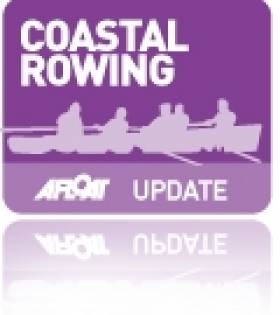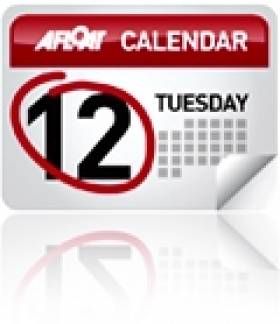Displaying items by tag: Regattas
First Foyle Regatta For Sailors With Disabilities
#Regatta - The recently established Foyle Sailability will host its first regatta for people with disabilities in Derry this Thursday and Friday 16-17 May, as the Derry Journal reports.
Volunteers from Lough Foyle Yacht Club, Lough Swilly Yacht Club and Moville Boat Club will be on hand, joined by volunteers from Belfast Lough Sailability for the two-day event which marks the first time that a fleet of accessible dinghies has cruised together on the River Foyle.
People with disabilities across the northwest are invited to try out sailing for themselves by contacting Foyle Sailability at 71 266 593 or [email protected].
The regatta will meet at the Foyle Pontoon at Riverfront Walkway off Baronet Street from 11am to 3pm each day of the event.
East Coast Rowing Council Announces 2013 Regattas
#CoastalRowing - The East Coast Rowing Council has announced its list of coastal rowing regatta fixtures in Dublin, Wicklow and Wexford for the 2013 season.
Commencing with the Greystones Regatta on 26 May, the schedule also includes events in Arklow (2 June) and Dalkey (9 June), the Stella Maria Regatta in Ringsend on 16 June and the Bray Regatta on 30 June.
July will see two events, the St Patrick's Regatta in Dublin's Docklands on 14 July and St Michael's Regatta off Monkstown and Dun Laoghaire on 28 July, while the Wicklow Regatta will mark the end of 2013's summer events on 5 August.
Locations of the various regattas and suggested viewing points are available HERE.
Foynes Yacht Club Regatta Takes Place on Sunday
This Sunday, July 11 at Foynes Yacht Club the annual regatta will take place. It is expected that all craft and members will be sailing for what promises to be an eventual day. Class 1, 2, White Sails, Mermaids and the Topaz fleets will be competeing for the trophies in their respective classes, proceedings will begin at 2.30pm.
Foynes YC had the biggest number of entries with six boats, who did extremely well in the West of Ireland Offshore Racing Championships, which were hosted by the Royal Western Yacht Club, Kilrush from Wednesday of last week to Saturday.
Unfortunately, no racing on Friday took place due to the extreme wind conditions, but Officer of the Day, Alan Crosbie, and his team did excellent work in getting six races completed for each of the four classes.
Strong winds prevailed for all the races so reduced sail area and lively conditions afloat made for exciting sailing.
On Saturday last, race starts and management for thre last two races was conducted from the Naval vessel, LE Aoife making a visit to Kilrush for a Sea festival weekend hosted by Kilrush Chamber of Commerce.
The six entrants from Foynes Yacht Club had their most successful west coast championships for years with Dis-a-ray sailing in Class 2 owned by Ray McGibney from Tarbert declared the overall champion when all the results had been tallied.
As well as Dis-a-ray picking up the WIORA cup silverware. Dexterity also won the X332 Raymarine Cup for being the best placed X-yachts boat at the championships.
Overall class results and finishing positions for all six Foynes boats who completed as follows: Class 1 IRC, 4th Dexterity, Team Foynes. Class 1 Echo, 2nd Dexterity, Team Foynes.
Class 2 IRC, 1st Dis-a-ray, Ray McGibney. Class 2, IRC, 5th, Golden Kopper, John and Edward Conway. Class 2, Echo, 4th Dis-a-ray, Ray McGibney. Class 2, Echo, 6th Golden Kopper, John and Edward Conway.
Class 3, IRC, 2nd Battle, Donal McCormack and John-Paul Buckley. Class 3, Echo 1st Battle, Donal McCormack and John-Paul Buckley.
White Sails: 3rd Jasmine II, John Finnegan. 5th Tangalooma, Des Carswell.
Incidentally, Foynes Yacht Club will be hosting WIORA in July 2012.
Mermaid racing took place last Wednesday evening, where marks were laid in the harbour area. Geoff McDonnell, the seafaring expert came in first with Kilmoon, followed by Mermaid class captain, Conor Roche on Sea Fox, and third was the intrepid sailor, Michael Burke on Seagoon.
Padraic Kelly, sailing 'Mweeloon' set off for France last Saturday morning from the pontoons with his crew of his wife, Annemarie, Brian O'Donnell and John Considine. We wish Padraic and company fair sailing!
Sailing continues every Wednesday for all classes with first gun at 19.25hrs.































































